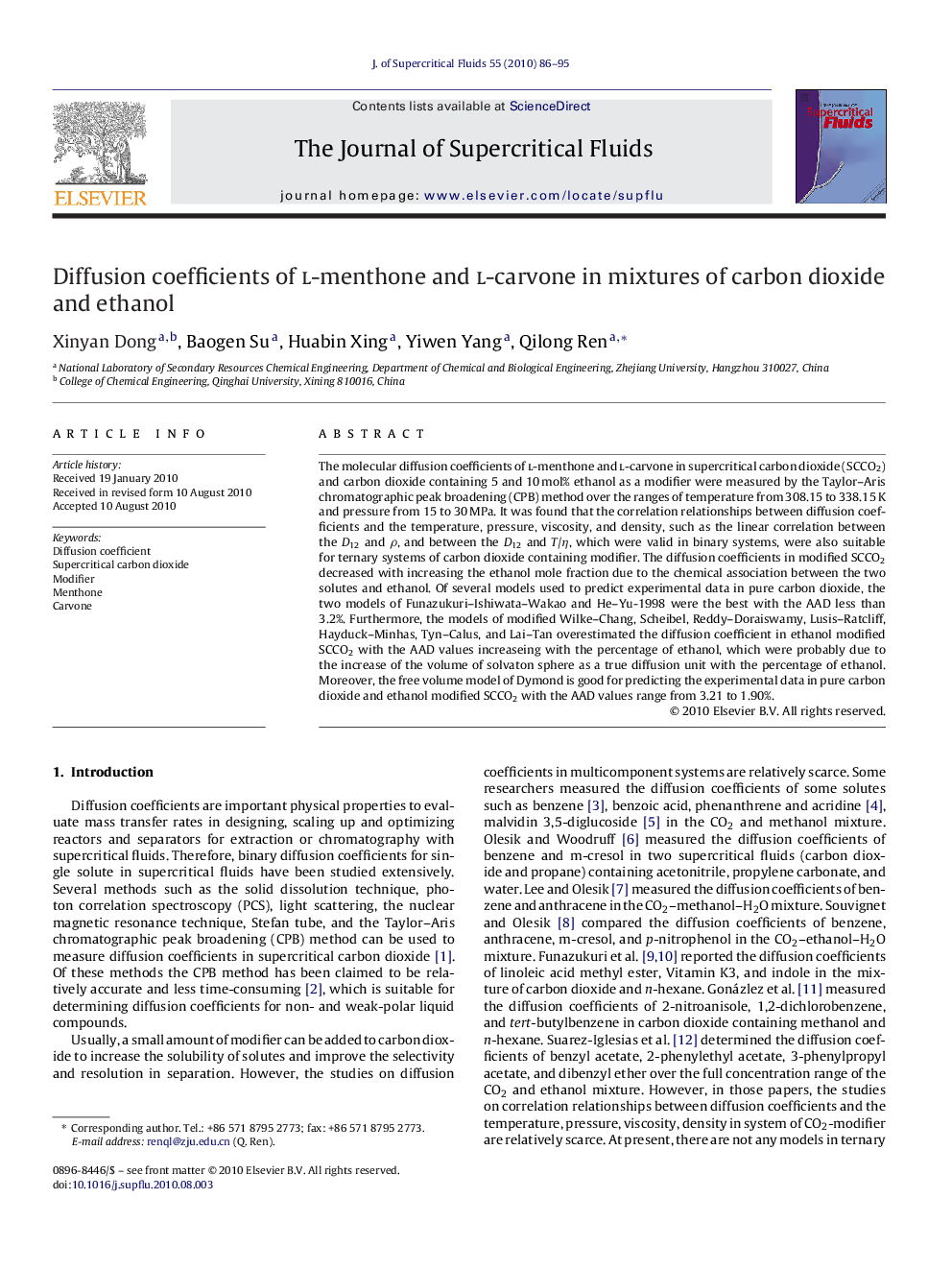| Article ID | Journal | Published Year | Pages | File Type |
|---|---|---|---|---|
| 231320 | The Journal of Supercritical Fluids | 2010 | 10 Pages |
The molecular diffusion coefficients of l-menthone and l-carvone in supercritical carbon dioxide (SCCO2) and carbon dioxide containing 5 and 10 mol% ethanol as a modifier were measured by the Taylor–Aris chromatographic peak broadening (CPB) method over the ranges of temperature from 308.15 to 338.15 K and pressure from 15 to 30 MPa. It was found that the correlation relationships between diffusion coefficients and the temperature, pressure, viscosity, and density, such as the linear correlation between the D12 and ρ, and between the D12 and T/η, which were valid in binary systems, were also suitable for ternary systems of carbon dioxide containing modifier. The diffusion coefficients in modified SCCO2 decreased with increasing the ethanol mole fraction due to the chemical association between the two solutes and ethanol. Of several models used to predict experimental data in pure carbon dioxide, the two models of Funazukuri–Ishiwata–Wakao and He–Yu-1998 were the best with the AAD less than 3.2%. Furthermore, the models of modified Wilke–Chang, Scheibel, Reddy–Doraiswamy, Lusis–Ratcliff, Hayduck–Minhas, Tyn–Calus, and Lai–Tan overestimated the diffusion coefficient in ethanol modified SCCO2 with the AAD values increaseing with the percentage of ethanol, which were probably due to the increase of the volume of solvaton sphere as a true diffusion unit with the percentage of ethanol. Moreover, the free volume model of Dymond is good for predicting the experimental data in pure carbon dioxide and ethanol modified SCCO2 with the AAD values range from 3.21 to 1.90%.
Graphical abstractFigure optionsDownload full-size imageDownload as PowerPoint slide
